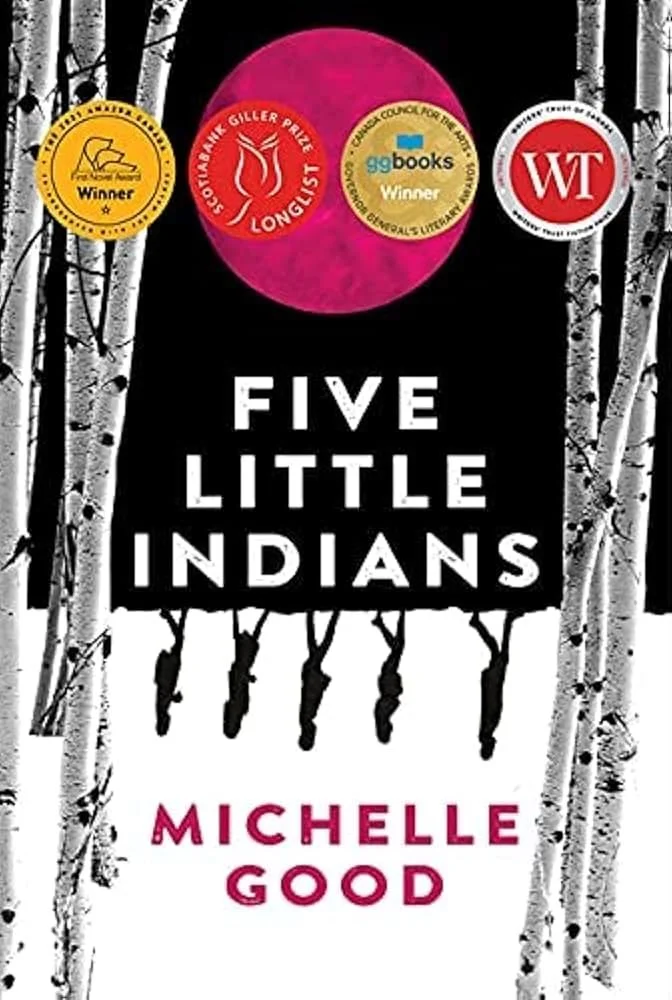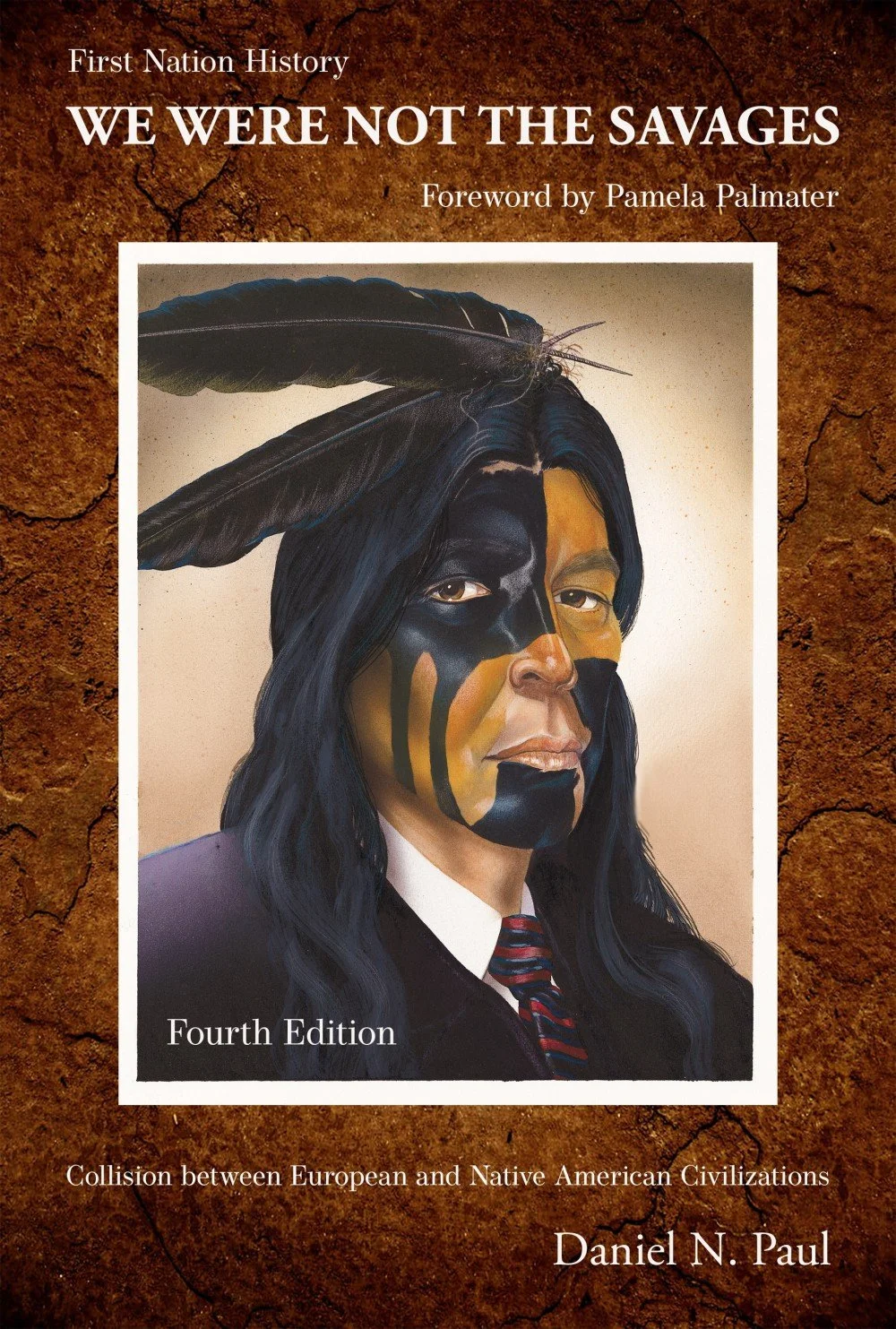Truth and Reconciliation
The Words Are Still Here and So Are We
Tara McGowan-Ross is a Mi’kmaw multidisciplinary artist, and a contributing writer for Forget the Box. She is the author of Nothing Will be Different, which was a finalist for the Hilary Weston Writers’ Trust Award for Nonfiction. She lives in Montreal.
I’m writing this on the fifth day we’ve marked the National Day for Truth and Reconciliation in Canada. It’s a day to reflect on our country’s genocidal origins, and specifically a day to commemorate the victims of the Canadian residential school system.
The residential school system was a coercive, mandatory forced assimilation project in which Indigenous children were removed from their communities, often by force. The intention of the
the project, as expressed by one government worker, was to “get rid of the Indian problem.” (Source: https://thecanadianencyclopedia.ca/en/article/duncan-campbell-scott) The schools, funded by the Canadian government and run by Catholic and Protestant churches, were a weapon of cultural imperialism and genocide by design, in which students were frequently treated about as badly as it is possible to treat children. Due to inaccurate record-keeping, racism, and the well-documented institutional tradition of abuse denial in Christian churches, we don’t know exactly how many children never made it home from schools. Current estimates place it somewhere around six thousand. It might be more.
Survivors endured the kind of physical, sexual, and spiritual abuse from which it takes generations to recover. The last fully-funded Canadian residential school closed in 1996. Reading and writing are the greatest things that have ever happened to me. To me, they are the most powerful, transgressive, punk rock, and dangerous things it’s possible to do. They are weapons that are all the more powerful because they are completely peaceful. The writer Sasha Chapin once said that good writing is black magic that makes you think someone else’s thoughts. Symbols on a page are just symbols until the mind of another makes meaning out of them, and when that happens, it happens inside of you. Good writing changes you from the inside. It is the most intimate act I can imagine. This happens across time in a way that nothing can stop, not even death. Years after the disaster, the writing is still here. And so are we.
So, on the subject of Truth and Reconciliation, here is a short list of books I love by Indigenous writers. The offerings here are a mixture of work that is specifically about the residential school system, and incredible work by Indigenous writers that I believe can contribute to each of our personal process of decolonization, even when the subject matter diverges.
I Lost My Talk by Rita Joe
This collection by the Poet Laureate of the Mi’kmaq people contains one of the most iconic poems to ever come out of Canada. (Link: https://poetryinvoice.ca/read/poems/i-lost-my-talk) It’s accessible, beautiful, and powerful for a range of ages.
Five Little Indians by Michelle Good
A writer, former lawyer, and advocate, Michelle Good was inspired to write this book in response to racist comments on news stories about Indigenous people, which frequently asked why residential school survivors couldn’t “just get over it.” It’s a powerful narrative about the intergenerational effects of trauma. While I haven’t read it yet, I’m also looking forward to reading Truth Telling: Seven Conversations About Indigenous Life in Canada, Good’s most recent work of nonfiction.
Indian Horse by Richard Wagamese
Speaking as a writer, on the level of craft, I adore this book. It’s well-plotted, exciting, and at once a school story and a sports epic about the life of a ludicrously talented young hockey player. It has the most heartbreaking twist that I probably should have seen coming. I’ve never felt my heart literally fall like that.
The Marrow Thieves by Cherie Dimaline
After my undergraduate degree, I lost my love of reading for a long time. This was the book that brought it back. This is a dystopian sci-fi about a rag-tag group of young Native teens trying to survive a world where settlers — who have lost the ability to dream — are hunting down Indigenous people, whose capacity to dream remains intact, in order to make a medicine out of their bone marrow. It really do be that way sometimes! I read it voraciously in my tent during a season of tree planting in the BC interior.
We Were Not The Savages by Daniel N. Paul
This was on my family bookshelf growing up. It’s a history of the colonization of Mi’kmaki from a Mi’kmaw perspective.
Split Tooth by Tanya Tagaq
There is a version of how I thought about the world before I read this book, and a version after. This book changed my relationship to the cold. I think about death differently now. I love this book.
Kiss of the Fur Queen and Permanent Astonishment, both by Tomson Highway
National treasure Tomson Highway has blessed us with fiction, nonfiction, and theatre (Dry Lips Oughta Move to Kapuskasing, the Rez Sisters). Kiss of the Fur Queen is his novel, and Permanent Astonishment is a memoir — about what he loves, and what loves him, and about residential school, and about abuse. And it’s also about joy. That’s the most important part: the joy.
May carrying our failures make us strong. May every survivor find their way to joy. May we all die free.
For a deeper exploration of Indigenous literature, check out Radio Noon Quebec with Shawn Apel featuring Tara McGowan-Ross and Michelle Good.
The Montreal Indigenous Community NETWORK
The NETWORK contributes to establishing and fostering an environment centered on relationship-building and community connections that ensure safe and abundant access to culturally relevant information, services, and resources. They are working towards an urban setting which honours, respects and celebrates the diversity of Indigenous knowledge, cultures and innovation.
Mental Health Supports Available
Former residential school students can call 1-866-925-4419 for emotional crisis referral services and information on other health supports from the Government of Canada.
Indigenous peoples across Canada can also go to The Hope for Wellness Help Line 24 hours a day, 7 days a week for counselling and crisis intervention.
Call the toll-free Help Line at 1-855-242-3310 or connect to the online chat (Please use Google Chrome).
If you’re reading Forget The Box, you’re a supporter of free, independent arts coverage. We ask you to take a moment to consider donating $1 to help us continue our mission to spotlight ground level, underground, and marginalized art in Montreal. Every little bit helps.









